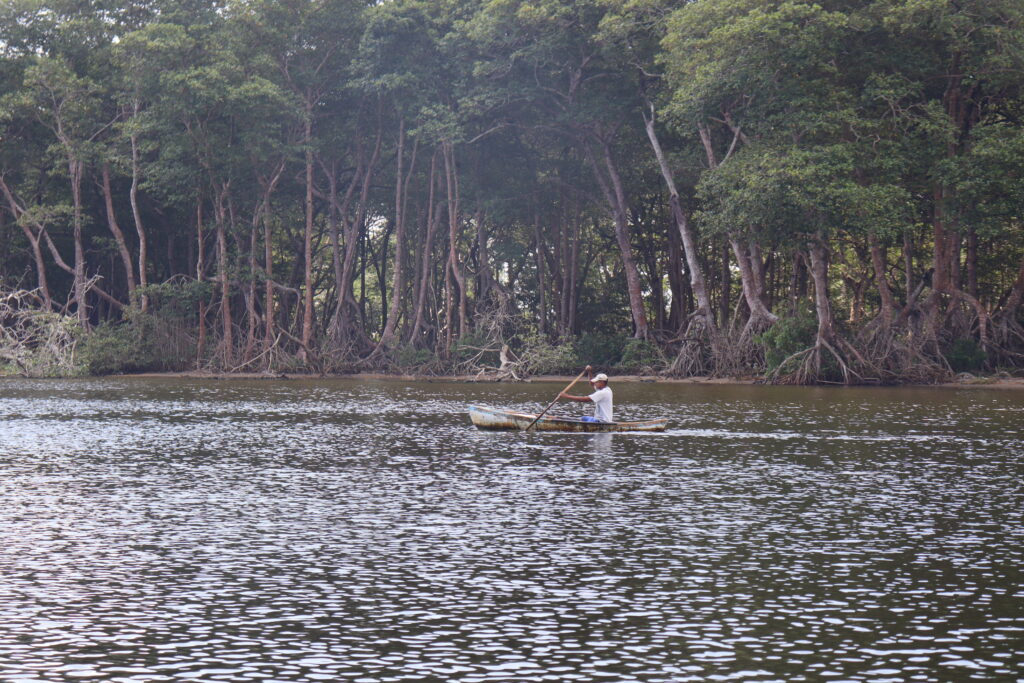Micos Lagoon, nestled in the heart of Honduras, stands as a symbol of ecological and economic significance. This natural wonderland is an essential breeding ground for several endangered species of marine life, including sea turtles, manatees, and American crocodiles, and plays a crucial role in preserving the region’s biodiversity. In addition to its ecological value, the lagoon is also a vital source of livelihood for local communities, serving as a major fishing ground that provides them with a source of food and income.
At CORAL, we recognize the critical importance of preserving and conserving Micos Lagoon, not just for the benefit of the region’s wildlife but also for the prosperity of the people who rely on it. That’s why we’re thrilled to announce that together, with our local partners, we were able to establish the area as the first of its kind, a marine/coastal territorial use right system. This groundbreaking step means that we can regulate and monitor artisanal fishing activities in the region more effectively, ensuring that they are sustainable and do not harm the fragile ecosystem of the lagoon.
We’re proud to say that our efforts have already yielded results. Through our work collaborating with our local partners, we have been able to increase the fish biomass within the lagoon by a staggering 600%, providing a boom for local fishermen and ensuring a sustainable source of income for generations to come. At CORAL, we remain committed to our mission of preserving and protecting the world’s coral reefs and the communities that depend on them, and we look forward to continuing our work at Micos Lagoon and beyond.

Communities with a Voice
We are proud to share that our recent efforts to promote sustainable artisanal fisheries in Latin America and the Caribbean (LAC) were highlighted in a featured publication, “Comunidades con voz: El futuro de la pesca artesanal en Latinoamérica y el Caribe” (Communities with a voice: The future of artisanal fishing in LAC).
Artisanal and subsistence fishing in LAC is critical to the region, but historically, sustainable management has been a challenge. To address this issue, there has been a global trend towards managing the fishing sector through adaptive partnerships. These experiences highlight the importance of collective decision-making and community-led efforts for the conservation and sustainable management of fish resources.
Our work seeks to inspire and promote co-management systems that prioritize the rights of fishers and the sustainability of fish resources in LAC. By sharing positive experiences and adaptive learning processes, we hope to empower fishing communities to take an active role in the governance of their countries and the preservation of their valuable resources.
What’s Next for Micos Lagoon?
We are planning to continue monitoring and patrolling the lagoon to update the ministerial decree using science-based adaptive management. According to CORAL’s Principal Program Coordinator for the North Coast, Julio San Martin Chicas, ” I am very excited to be part of this project together with the PROLANSATE Foundation, the Forest Conservation Institute (ICF), DIGEPESCA, AMATELA and the Inter-Institutional Committee for the Environment and Protected Areas of the Municipality of Tela (CIAT). We believe that the effective management of natural resources requires the participation and empowerment of local communities and organizations. This collaborative and participatory work allows us to see every day the positive impacts on the reefs. We believe that sustainable fishing transcends generations!“
Stay tuned for future updates on work in Micos Lagoon!
